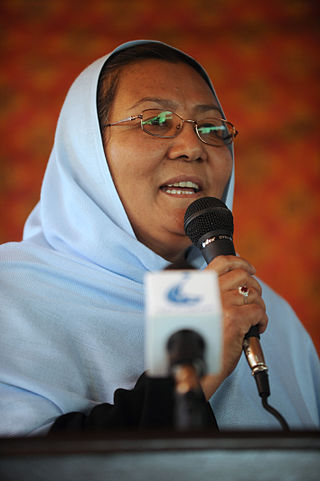
Dr. Habiba Sarābi is a hematologist, politician, and reformer of the reconstruction of Afghanistan after the Taliban first took power. In 2005, she was appointed as Governor of Bamyan Province - the first Afghan woman to become a provincial governor. She had served as Afghanistan's Minister of Women's Affairs and as Minister of Culture and Education. Sarabi was instrumental in promoting women's rights and representation and environmental issues. She belongs to the ethnic Hazara people of Afghanistan. Her last name is sometimes spelled Sarobi.
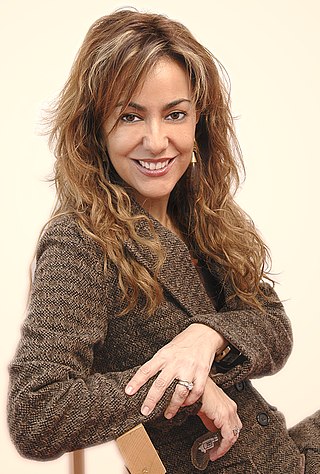
Maria de la Pau Janer is a writer from Spain who works in Spanish and Catalan. She is a recipient of the Premio Planeta de Novela and the Ramon Llull Novel Award.
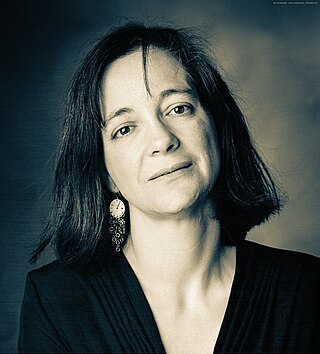
Maria Mercè Marçal i Serra was a Catalan poet, professor, writer and translator from Spain.
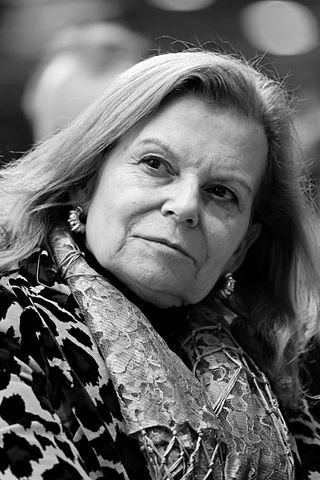
Carme Riera Guilera is a novelist and essayist. She has also written short stories, scripts for radio and television and literary criticism. She holds a doctorate in Hispanic Philology and is a professor of Spanish literature at the Universitat Autònoma de Barcelona.
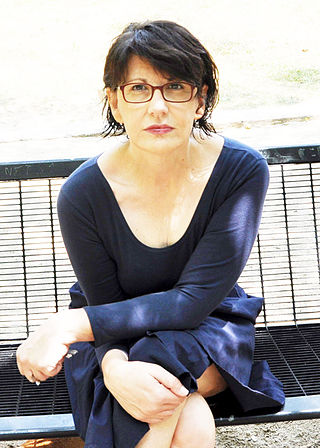
Imma Monsó is a Spanish fiction writer.

Lluís-Anton Baulenas is a Catalan novelist, translator and playwright.
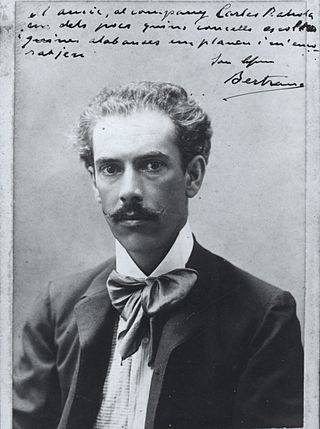
Prudenci Bertrana i Comte was an important modernist writer in Catalan.

Qadriya Yazdanparast is an Afghan politician and a commissioner at the Afghanistan Independent Human Rights Commission. Before start working in the Afghanistan Independent Human Rights Commission she resigned from her leadership position of the Jamiat-e Islami Afghanistan in order to fulfill the requirement of a commissioner to be non political. It is to be said that the Jamiat-e Islami is the biggest political party in the history of Afghanistan. She started her career during the Soviet–Afghan War. She studied jurisprudence and political science at Kabul University. Yazdanparast speaks Pashto, Dari, Dutch and English.

Aryana Sayeed is an Afghan pop singer and songwriter. She sings mostly in Dari but also has many songs in Pashto and some in Uzbek. Sayeed also had hosting roles in musical television shows for the 1TV and TOLO networks along with appearances on reality shows. Sayeed has established herself as one of Afghanistan's most famous contemporary musical artists, performing regularly in concerts and philanthropic festivals within and outside Afghanistan.

Isabel Steva i Hernández, whose pseudonym was Colita, was a Spanish photographer. She trained with Xavier Miserachs i Ribalta, and began her professional career in 1961 as a laboratory technician and stylist for Miserachs.

Aurora Bertrana i Salazar was a Catalan cellist and writer, notable for her exotic stories and novels. She lived in Tahiti, Morocco, Switzerland, and France. Bertrana's republished memoires combining Memòries fins al 1935 (1973) and Memòries del 1935 al retorn a Catalunya (1975) provide a detailed account of her life.

Julià de Jòdar i Muñoz, is a Spanish writer in Catalan.
Margarita Brender Rubira (1919-2000) was a Romanian-born architect, the first woman architect in Catalonia.
María del Carme Ribé i Ferré (1920–1991) was a Catalan librarian, writer, and cultural activist.

Patrícia Gabancho Ghielmetti was an Argentine-born Spanish author and journalist, writing in Catalan. She primarily focused her writings on culture, history, politics and urbanism, especially in regards to Barcelona and Catalan culture. She was an active member in the Catalan movement and a member of La Plataforma per la Llengua. In 2012, she was awarded the Prudenci Bertrana Prize for her novel La néta d'Adam.

Iolanda Batallé is a Catalan writer and editor. She has been the Director of Institut Ramon Llull between 2018 and 2021. She is now director of Ona Llibres since 2022.
The Maria Àngels Anglada Prize is a Catalan literary award, given annually by the Institut Ramon Muntaner, in Figueres (Spain), with the aim of contributing to the promotion of Catalan literature, reaffirming the civic and cultural projection of the school and extolling the memory of the writer Maria Àngels Anglada, ex-professor of the centre. The award has the support of the Geli-Anglada family and the sponsorship of the Ajuntament de Figueres and the Diputació de Girona, as well as the collaboration of the Consell Comarcal de l'Alt Empordà.

Zakia Khudadadi also spelt as Zakia Khodadadi is an Afghan parataekwondo practitioner. She is the first Afghan female taekwondo practitioner. She rose to prominence after winning the African International Parataekwondo Championship in 2016 at the age of 18. She represented Afghanistan at the 2020 Summer Paralympics. She was initially denied the opportunity to compete at her first Paralympics due to the Taliban takeover but was later allowed by the International Paralympic Committee to compete in the event after being safely evacuated from Afghanistan. She was able to compete and became the first Afghan female Paralympic competitor to compete at the Paralympics in 17 years since Mareena Karim's participation at the 2004 Summer Paralympics. She also officially became the first Afghan female sportsperson to participate in an international sporting event after the Taliban takeover.
Khadija Zahra Ahmadi is an Afghan politician who was mayor of the city of Nili, in Daykunidi province, in central Afghanistan, from 2018 to 2021, until the fall of Afghanistan to the Taliban. She grew up in Iran in a refugee family who fled Afghanistan after the Soviet invasion. She is the second Afghan female mayor belonging to the Hazara ethnic group after Azra Jafari to achieve that rank. Zarifa Ghafari is a Pashtun native and the third women to be a mayor in post-Taliban era. During the time Ahmadi was a mayor, she received death threats from fundamentalist and Islamist groups like the Taliban. Like many other Afghans, she was forced to leave the country after the fall of Kabul and later resettled in Spain. On April 25, 2022, she was awarded with the "Reconocimiento Mare Terra" prize for her fight and advocacy for Afghan women's rights.
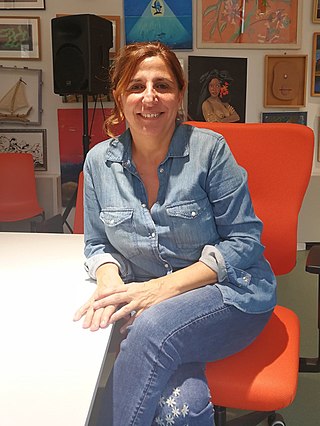
Sílvia Soler i Guasch is a Spanish writer and journalist who writes in Catalan. In 2013, her novel L’estiu que comença was awarded the Ramon Llull Novel Award.
















